Intermediate Pipe 3.1L Single - Olds And Buick
Removal Procedure
- Raise and suitably support the vehicle.
- Support the following components:
| • | Three Way Catalytic Converter |
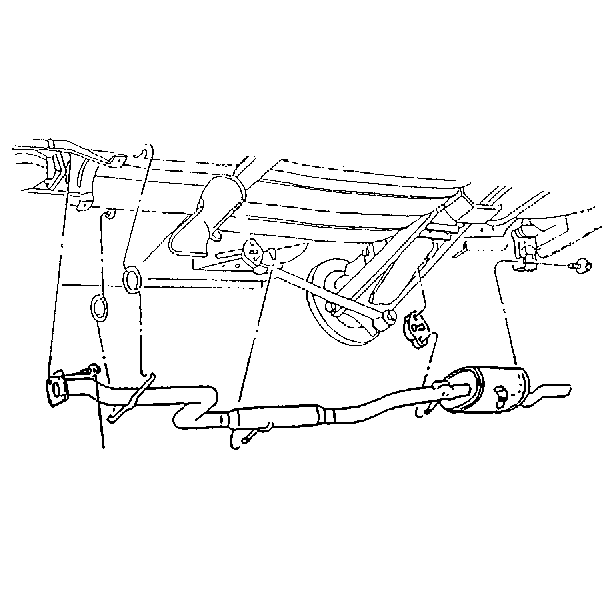
- Remove the following components from the intermediate pipe:
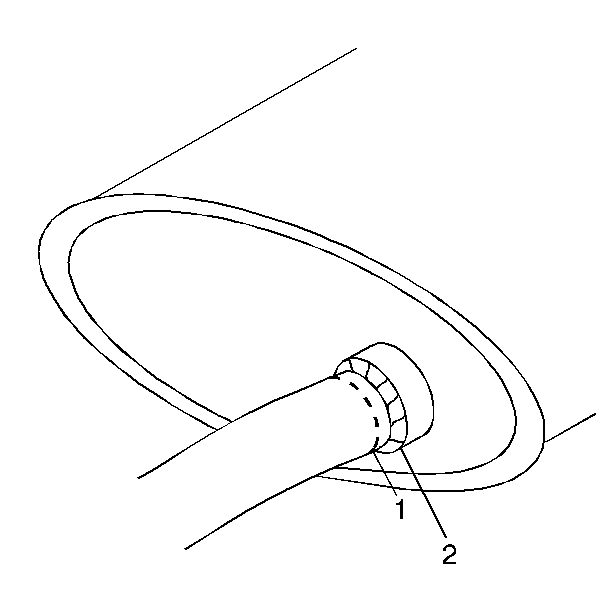
Important: Cut(1) must be made as close to the weld(2) as possible to ensure adequate
overlap for clamping.
- Cut the intermediate exhaust pipe from the muffler(s).

- Remove the intermediate exhaust pipe bolts from the three way catalytic converter.
- Remove the intermediate exhaust pipe.
Installation Procedure

- Install the new intermediate exhaust pipe.
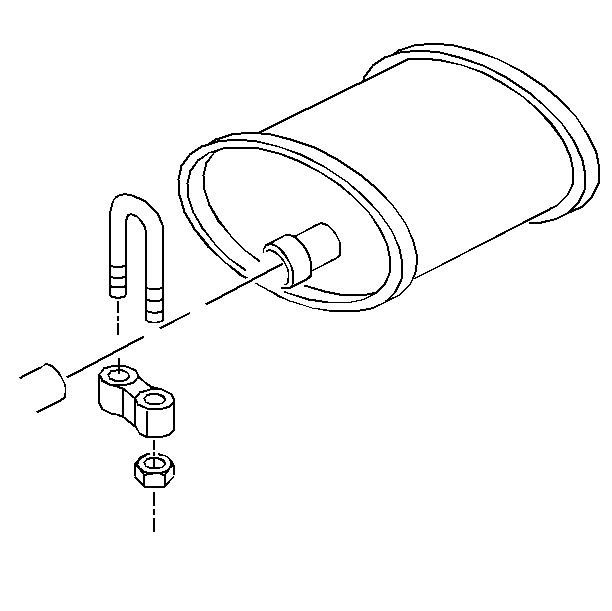
- Install the clamp to the original muffler. Do not tighten the clamp nut.
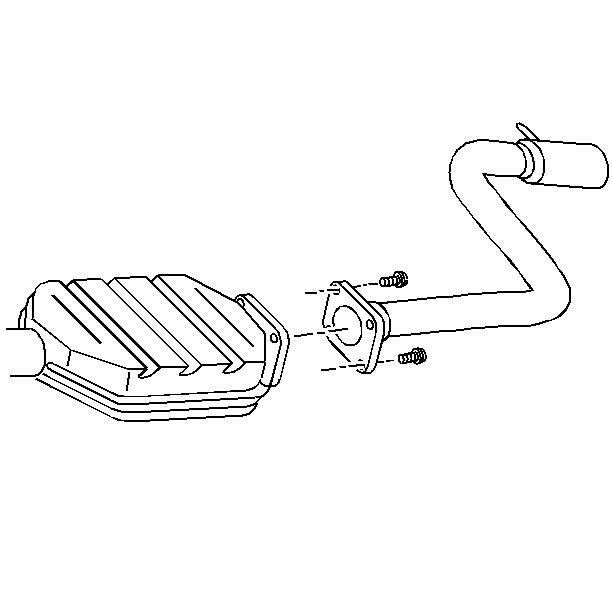
- Install the bolts to the three way catalytic converter.

- Install the insulators, the hangers, and the bolts, as used.
Tighten
| • | Tighten the clamp nut to 50 N·m (37 lb ft). |
| • | Tighten the bolts to the three way catalytic converter to 47 N·m
(35 lb ft). |
Notice: Use the correct fastener in the correct location. Replacement fasteners
must be the correct part number for that application. Fasteners requiring
replacement or fasteners requiring the use of thread locking compound or sealant
are identified in the service procedure. Do not use paints, lubricants, or
corrosion inhibitors on fasteners or fastener joint surfaces unless specified.
These coatings affect fastener torque and joint clamping force and may damage
the fastener. Use the correct tightening sequence and specifications when
installing fasteners in order to avoid damage to parts and systems.
- Lower the vehicle.
Intermediate Pipe 3.8L Single - Chevrolet
Removal Procedure
- Raise and suitably support the vehicle.
- Support the following components:
| • | Three Way Catalytic Converter |
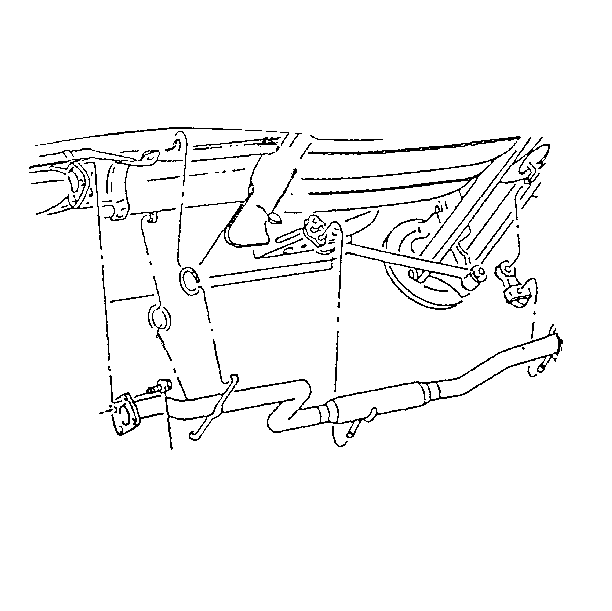
- Remove the following components from the intermediate pipe:
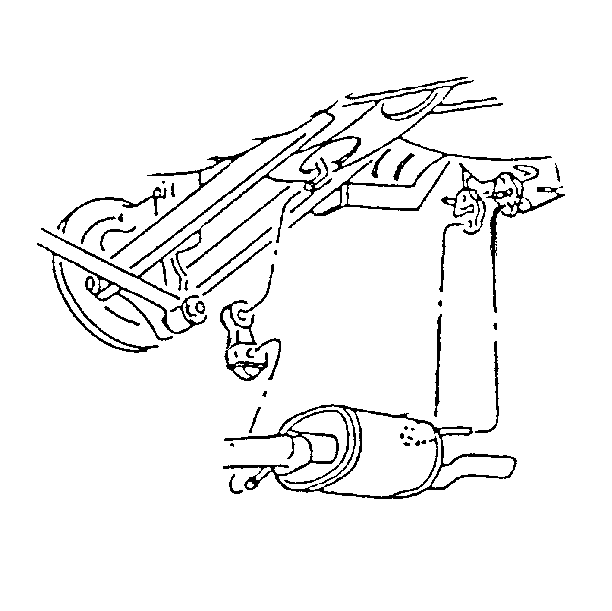
- Cut the intermediate exhaust pipe from the muffler(s).
Important: Cut(s) must be made as close to the weld(s) as possible to ensure adequate
overlap for clamping.

- Remove the intermediate exhaust pipe bolts from the three way catalytic converter.
- Remove the intermediate exhaust pipe.
Installation Procedure

- Install the new intermediate exhaust pipe.
- Install the clamp to the original muffler. Do not tighten the
clamp nut.

- Install the bolts to the three way catalytic converter.

- Install the insulators, the hangers, and the bolts, as used.
Tighten
| • | Tighten the clamp nut to 50 N·m (37 lb ft). |
| • | Tighten the bolts to the three way catalytic converter to 47 N·m
(35 lb ft). |
Notice: Use the correct fastener in the correct location. Replacement fasteners
must be the correct part number for that application. Fasteners requiring
replacement or fasteners requiring the use of thread locking compound or sealant
are identified in the service procedure. Do not use paints, lubricants, or
corrosion inhibitors on fasteners or fastener joint surfaces unless specified.
These coatings affect fastener torque and joint clamping force and may damage
the fastener. Use the correct tightening sequence and specifications when
installing fasteners in order to avoid damage to parts and systems.
- Lower the vehicle.
Intermediate Pipe Dual - Chevrolet
Removal Procedure
- Raise and suitably support the vehicle.
- Support the muffler, the intermediate pipe, and the three way
catalytic converter.
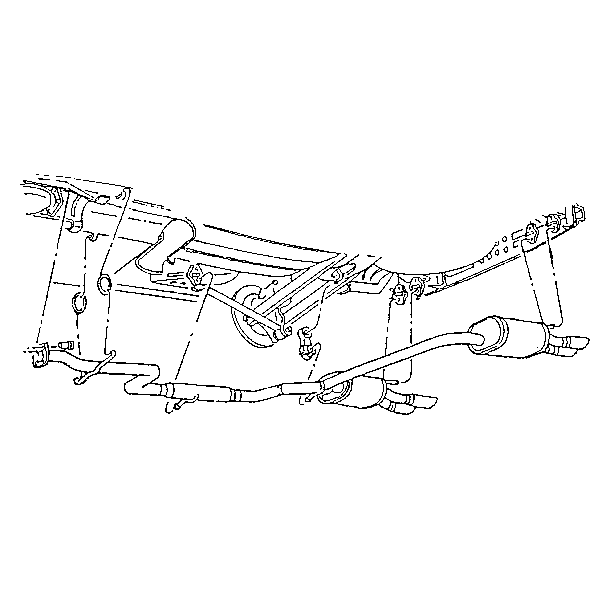
- Remove the bolts, the hangers, and the insulators, as used.
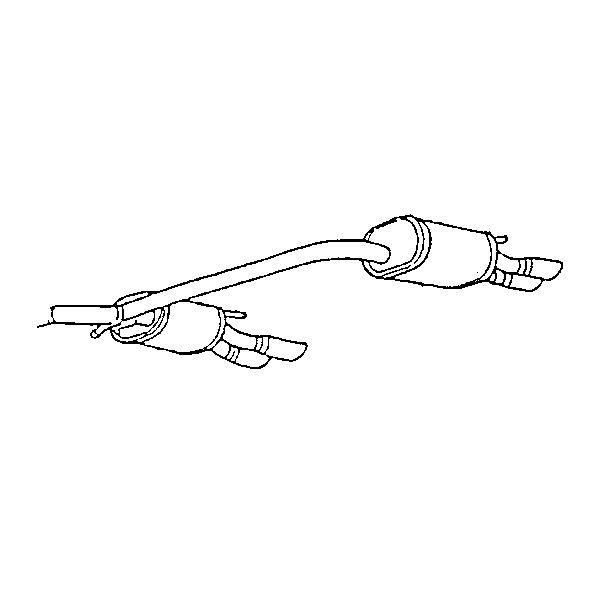
Important:
| • | The cut must be made as close to the right-hand muffler as possible
to ensure adequate overlap for clamping. |
| • | The cuts must be made on the intermediate straight pipe closest
to the curve coming out of the left-side muffler. Do not cut on the curve
or bend. |
- Cut the intermediate exhaust pipe from the right and left mufflers.
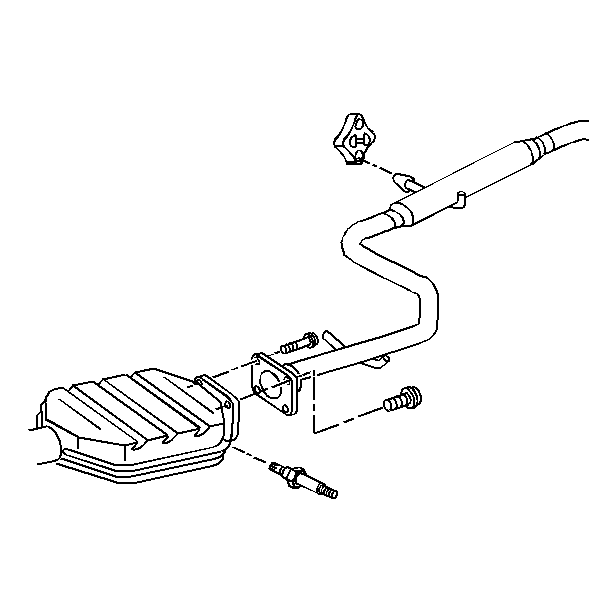
- Remove the intermediate exhaust pipe bolts from the three way catalytic converter.
- Remove the intermediate exhaust pipe from the vehicle.
Installation Procedure

- Install the new intermediate exhaust pipe to the vehicle and support.
- Install the clamp to the original mufflers.
- Install the bolts to the three way catalytic converter. Do not
tighten the clamp nut.

- Install the insulators, hangers, and bolts, as used.
Tighten
| • | Tighten the clamp nuts to 50 N·m (37 lb ft). |
| • | Tighten the bolts to the three way catalytic converter to 47 N·m
(35 lb ft). |
Notice: Use the correct fastener in the correct location. Replacement fasteners
must be the correct part number for that application. Fasteners requiring
replacement or fasteners requiring the use of thread locking compound or sealant
are identified in the service procedure. Do not use paints, lubricants, or
corrosion inhibitors on fasteners or fastener joint surfaces unless specified.
These coatings affect fastener torque and joint clamping force and may damage
the fastener. Use the correct tightening sequence and specifications when
installing fasteners in order to avoid damage to parts and systems.
- Lower the vehicle.
Intermediate Pipe Dual - Olds and Pontiac
Removal Procedure
- Raise and suitably support the vehicle.
- Support the muffler, the intermediate pipe, and the three way
catalytic converter.
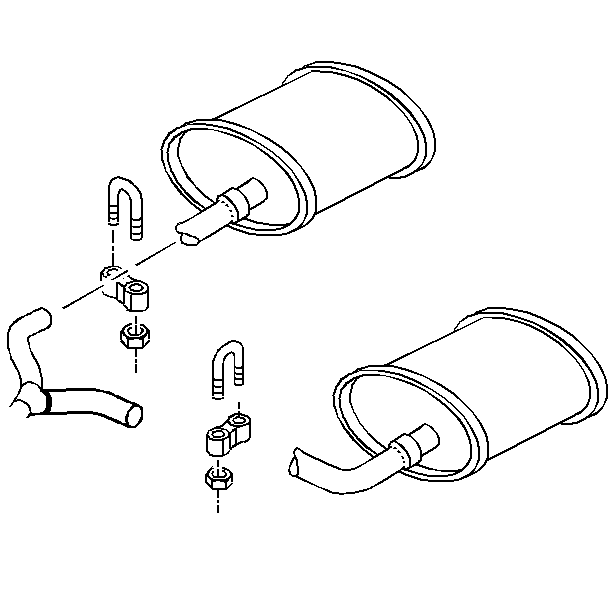
- Remove the left-hand muffler crossover pipe from the intermediate pipe.
Important: The cut must be made as close to the right-hand muffler as possible
in order to insure adequate overlap for clamping.
- Cut the intermediate exhaust pipe at the right-hand muffler.
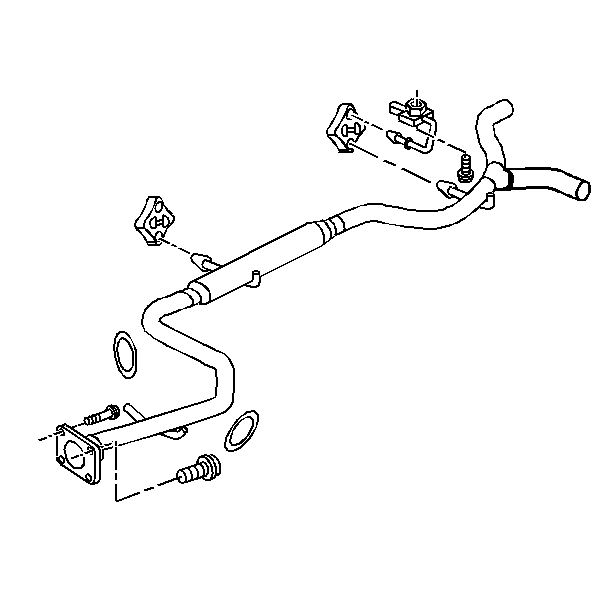
- Remove the bolts, the hangers, and the insulators as used.

- Remove the intermediate exhaust pipe bolts from the three way catalytic converter.
- Remove the intermediate exhaust pipe from the vehicle.
Installation Procedure

- Install the new intermediate exhaust pipe to the vehicle and support.
- Install the bolts to the three way catalytic converter.

- Install the left-hand muffler crossover pipe to the intermediate pipe.
- Install the right-hand muffler to the intermediate pipe.

- Install the insulator, the hangers, and
the bolts as used.
Tighten
| • | Tighten the clamp nuts to 50 N·m (37 lb ft). |
| • | Tighten the bolts to the three way catalytic converter to 47 N·m
(35 lb ft). |
Notice: Use the correct fastener in the correct location. Replacement fasteners
must be the correct part number for that application. Fasteners requiring
replacement or fasteners requiring the use of thread locking compound or sealant
are identified in the service procedure. Do not use paints, lubricants, or
corrosion inhibitors on fasteners or fastener joint surfaces unless specified.
These coatings affect fastener torque and joint clamping force and may damage
the fastener. Use the correct tightening sequence and specifications when
installing fasteners in order to avoid damage to parts and systems.
























